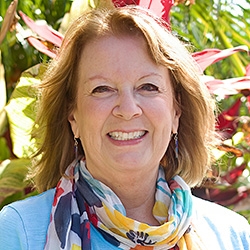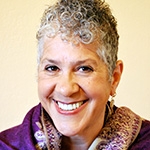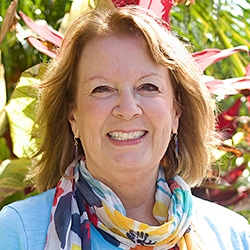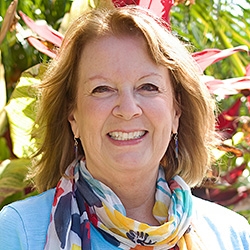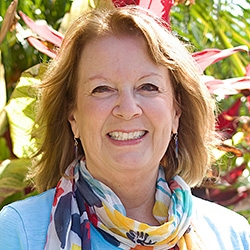
Search Results: anger
-
Trainer Tip: In Compassionate Communication, we consider needs to be universal. That means that while we all have the same needs, such as for love, support, shelter, food, joy, caring, etc., we choose different ways to meet our needs.
-
Working on social justice and racial equity? If you include attending to white culture and privilege as part of that work, you'll reap important benefits. Understanding white culture — along with its embedded historical privileges — provides valuable insight into a larger system of inequity.
-
Trainer Tip: What is motivating your (in)actions? Are you doing something in the name of supporting deeper heartfelt needs, free of judgement or blame? Or are you bringing in consequences based on viewing the other person as having "bad behaviour"?
-
- Celebrate and nurture your relationship to the Earth — and each other!
- Explore your connections to family, partner, work, nature, self and more
- Discover new ways to grow in community and work together to make this world a better place
- Engage and immerse yourself in NVC while making new friends!
-
How do we talk to ourselves and with others about polarizing topics in a way that's supportive? Seek to understand and be understood rather than press for agreement. Bring mindfulness into the conversation. Slow down and use structure to support everyone. Release knowing the solutions, answers or outcomes. Keep focus on shared universal needs. From this place we can say what's in our hearts and minds, and trust the process.
-
Miki explains the distinction between the language and the underlying consciousness of NVC, and the pitfalls of failing to do so.
-
Trainer Tip: When we love a child there's a contribution we can provide in helping them go their own way successfully, in big ways and small.
-
One thing that makes empathic understanding difficult yet valuable is that it can be humbling. If I really open myself to hearing and understanding, while trusting my inner strength of self-knowing, I may be changed by what I hear. My core beliefs or understanding might change and grow. This openness could be key to transforming the energy of conflict into new possibilities for greater connection, creativity, and well-being.
-
Among NVC practitioners, empathy can be superficial. How open are you to being influenced by what others are saying? Do you reflect back and then guard and remain within your position of being right, even as you say otherwise? Only when we're eager to be influenced by what they say can we connect, expand our world and thus, shift the field. Without such openness we fool ourselves into thinking we are truly empathic listeners.
-
-
-
This chart is intended as an aid to translating words that are often confused with feelings. These words imply that someone is doing something to you and generally connote wrongness or blame. To use this list, when somebody says “I’m feeling rejected,” you might translate this as: “Are you feeling scared because you have a need for inclusion?”
-
Ask the Trainer: “I would love some clarity about the NVC perspective on the cause of our feelings. It seems to me that my needs may be met or not, but the cause of my painful feelings is my story around the situation.”
-
Have you ever gotten a fishing line all tangled up? You got so frustrated you just started yanking on the different loops of line, which of course made the knots and tangles even tighter and more difficult to untangle. Wouldn’t it be great if you could notice the minute you were starting to tangle things up in a discussion with your loved one?
-
Listen to Jim and Jori Manske share their understanding of discernment to gain clarity, insight, and wisdom for making life-serving distinctions and choices.
-
Jim and Jori offer practical tools to help us develop patience through a process they call WAIT: Wake up, Accept, Insight, Take a step.
-
How is empathy in the workplace a professional skill? If you are ready to learn why and how empathy is the critical factor to more productivity, profitability and collaboration in the workplace, this recording is for you!
-
Reveal, own and share the inner chatter that plays over and over in your head, in between the words you speak aloud. Arnina Kashtan will help you discover, embrace and open up the places inside that you’ve hidden and judged.
-

What are the most powerful things I can do to build an inspired relationship? I answered the question with romantic relationships in mind; however, I believe the answer below applies to all important relationships.
-
Trainer Tip: It is true that we cannot fully understand other people until we understand ourselves. Gain understanding and healing through self-empathy within the Compassionate Communication process.

